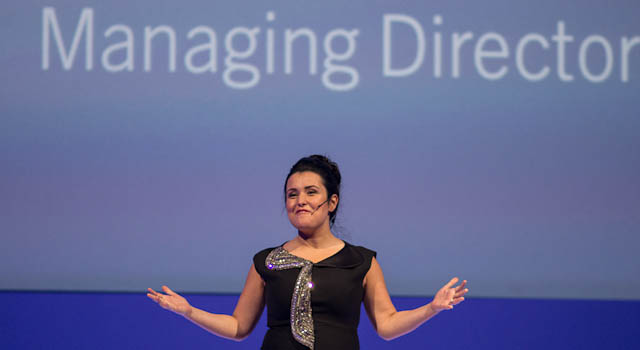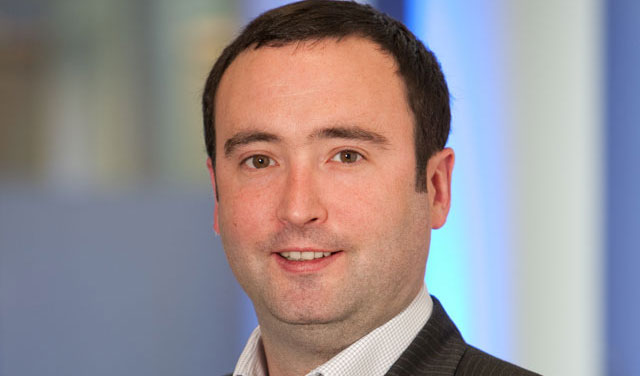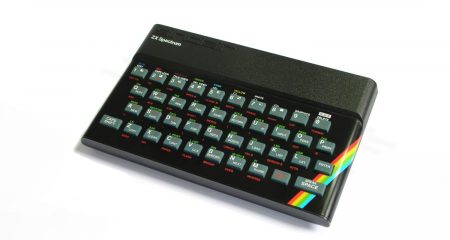
“This is it. This is the moment we have all been waiting for.”
With those words, Research in Motion (RIM) South African MD Alexandra Zagury kicked off the Johannesburg launch of BlackBerry 10 (BB10), the operating system that RIM hopes will help it begin to claw back market share it has lost to rival platforms.
But RIM, which on Wednesday announced it was changing its name to BlackBerry, faces a number of challenges if it’s to convince top-end consumers who have defected to other platforms to return to the brand while also winning over new users.
The company has taken the wraps off two new devices powered by BB10: the Q10, a Qwerty keyboard-packing hybrid phone, and the touch-only Z10.
The launch of BB10 has been delayed repeatedly and, although BlackBerry has managed expectations well by painting the delays as a necessity if it is to release the best operating system possible instead of rushing out a solution, these delays have given its rivals longer to woo high-end smartphone users away from the BlackBerry platform.
Historically, BlackBerry’s user base — now almost 80m strong globally — has been a combination of businesspeople and low- and middle-income users eager to take advantage of its flat-rate BlackBerry Internet Service (BIS), which offers data and e-mail at a fixed monthly rate. A decade ago, BlackBerry dominated the business market because of the security it offered companies by using its own servers, rather than operators’, for all communication.
This unique selling point has, however, eroded in recent years as executives have begun demanding that their IT departments provide support for devices running Google’s Android, Apple’s iOS and Microsoft’s Windows Phone operating systems. BlackBerry doesn’t just need to convince new customers that it’s a worthy competitor, but win back the attention of high-end users who have since moved on.
Wanting to take no chances, BlackBerry held eight simultaneous events to launch BB10 on Wednesday in New York, Toronto, London, Paris, Dubai, Johannesburg, Jakarta and Delhi. India and South Africa remain strongholds for the company, particularly at the low-end of the market, which goes some way to explaining their inclusion on the list of launch cities.
In South Africa, BlackBerry has opted to focus on the Z10 at launch, its touch-only BB10 device. Reminiscent of Apple’s iPhone 5 from a styling perspective, the Z10 looks the part of a premium device. However, BB10 is very different from other mobile operating systems.
The operating system places heavy emphasis on the ability to move between applications with swipes and gestures rather having to return to a home screen, along with the ability to see notifications from e-mail, messaging and social media from within an application.
Fans of BlackBerry’s physical keyboard-based devices will have to wait until April for the Qwerty keyboard and hybrid Q10 handset. Up to six BB10 devices are expected in coming months, but BlackBerry has only confirmed the Z10 and Q10 for South Africa for now.
Telkom’s mobile arm, 8ta, has announced that it will have the Z10 available on 1 March.
Although BlackBerry doesn’t disclose customer numbers for specific regions, the company regards Africa as “crucial” because it’s the “fastest-growing smartphone market worldwide”, according to product and channel marketing vice-president Rory O’Neill.
“Johannesburg is one of the launch cities because this market is so important to us.”
Differentiated experience
O’Neill says BlackBerry hopes to recapture mindshare at the top end of the market by “building a differentiated experience”.
“We made a tough call two years ago to manage and control our own operating system. We wanted to control that entirely to continue to build customer loyalty at the high end,” O’Neill tells TechCentral. The new devices offer everything smartphone users expect, with some additions, he adds. “We’ve redesigned and re-imagined how smartphones work. There are no home or back buttons.”

The overhauled interface means its possible to move between messages, contacts, calendar items and the Web browser all without visiting the home screen. “This device is for people who are hyperconnected, social, purposeful. That’s just as likely to be a teen as it is an entrepreneur.”
Despite losing ground in developed markets, BlackBerry devices remain hugely popular in emerging markets. The company’s devices remain the best-selling smartphones in both Nigeria and South Africa, according to O’Neill, and he says that BlackBerry 7 — the operating system that powers its current devices — won’t be going anywhere.
“BB7 is a great social messaging proposition,” O’Neill says. “It offers many people their first experience of the Internet, never mind the mobile Internet. We want to keep that. We believe BB7 remains a great proposition for many markets and, as such, we’re going to keep innovating BB7 and the devices that use it.”
Arguably the biggest challenge BlackBerry faces is getting developers to create desirable applications for BB10. “A vital sign of health of any ecosystem is the state of the app content,” O’Neill says. “That’s the reason we started investing two-and-a-half years ago in the platform.”
The company has about 70 000 apps available at launch, including the bulk of the apps that have proved most popular on other platforms, he adds. — (c) 2013 NewsCentral Media
- Developing story … more to follow




